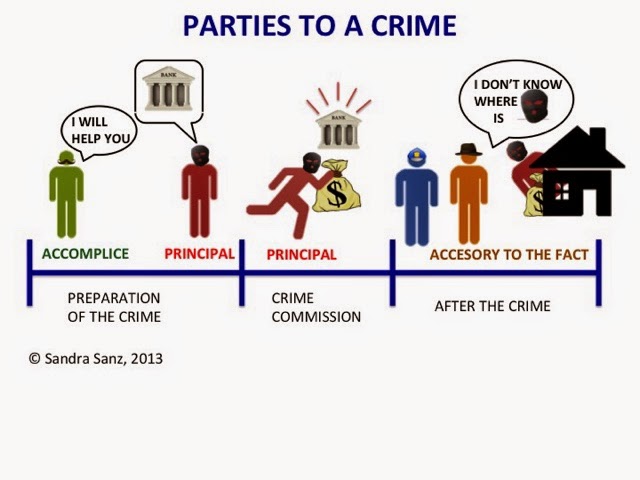Arraignment
On April 30, 2014, Cedric Lee and Simeon Raz appeared in court for the scheduled arraignment. This hearing is in connection to the Serious Illegal Detention Vhong Navarro filed against them. It is to be noted that among the persons charged with the mentioned criminal case, only Cedric Lee and Simeon Raz were brought to the jurisdiction of the court. Others remain at large as of this writing. The two were reportedly arrested from the far-flung area of Samar.
For the information of all the readers, the Arraignment is the start of the reeling of the wheel of Justice once the case is already pending in court. Thus, this post will discuss about Arraignment.
Definition of Arraignment:
According to http://legal-dictionary.thefreedictionary.com/arraignment, an arraignment is defined as a criminal proceeding at which the defendant is officially called before a court of competent jurisdiction, informed of the offense charged in the complaint, information, indictment, or other charging document, and asked to enter a plea of guilty, not guilty, or as otherwise permitted by law. Depending on the jurisdiction, arraignment may also be the proceeding at which the court determines whether to set bail for the defendant or release the defendant on his or her own recognizance.
Simply, an arraignment is informing the accused of the case filed against him. He is also informed of the nature and cause of the accusation. In this sense, arraignment is done in the manner that the criminal charge shall be understood by the accused. Thus, it must be done in the language or dialect spoken and understood by the accused. Otherwise, the arraignment is irregularly done.
Because English is the main language in court, there must be an interpreter that would translate the information of a criminal charge to the dialect selected by the accused.
How the arraignment is done?
(a) The accused must be arraigned before the court where the complaint or information was filed or assigned for trial. The arraignment shall be made in open court by the judge or clerk by furnishing the accused with a copy of the complaint or information, reading the same in the language or dialect known to him, and asking him whether he pleads guilty or not guilty. The prosecution may call at the trial witnesses other than those named in the complaint or information.
It is the court where the criminal case is filed that would conduct the arraignment of the accused. If other court would conduct the same, the arraignment is not valid. In this stage, the accused is asked whether he pleads guilty or not guilty. Of course, it can be done only after the reading of the information or complaint is done.
(b) The accused must be present at the arraignment and must personally enter his plea. Both arraignment and plea shall be made of record, but failure to do so shall not affect the validity of the proceedings.
It is the court where the criminal case is filed that would conduct the arraignment of the accused. If other court would conduct the same, the arraignment is not valid. In this stage, the accused is asked whether he pleads guilty or not guilty. Of course, it can be done only after the reading of the information or complaint is done.
(b) The accused must be present at the arraignment and must personally enter his plea. Both arraignment and plea shall be made of record, but failure to do so shall not affect the validity of the proceedings.
The arraignment cannot be done in proxy. The accused should be present in court during arraignment. There is no arraignment if the accused is absent. Thus, other person cannot enter the plea of the accused in his behalf.
(c) When the accused refuses to plead or makes a conditional plea, a plea of not guilty shall be entered for him.
After the reading of the information or complaint, the accused is then asked of his plea. His plea is either guilty or not guilty and nothing else. In the case of Cedric Lee and Simeon Raz, they refused to say anything. They refused to enter their pleas.
In this case, if the accused refused to enter any plea, a plea of not guilty shall be entered for him. Thus, a not guilty plea was entered for accused Cedric Lee and Simeon Raz.
A conditional plea takes form when the accused pleads guilty but asks some conditions for it.In this case, a plea of not guilty shall be entered for him.
(d) When the accused pleads guilty but presents exculpatory evidence, his plea shall be deemed withdrawn and a plea of not guilty shall be entered for him.
After the reading of the information or complaint, the accused is then asked of his plea. His plea is either guilty or not guilty and nothing else. In the case of Cedric Lee and Simeon Raz, they refused to say anything. They refused to enter their pleas.
In this case, if the accused refused to enter any plea, a plea of not guilty shall be entered for him. Thus, a not guilty plea was entered for accused Cedric Lee and Simeon Raz.
A conditional plea takes form when the accused pleads guilty but asks some conditions for it.In this case, a plea of not guilty shall be entered for him.
(d) When the accused pleads guilty but presents exculpatory evidence, his plea shall be deemed withdrawn and a plea of not guilty shall be entered for him.
In this case, the accused admitted the commission of the crime and thus he would enter his guilty plea. However, after saying a guilty plea, he would continue saying that he has some reasons why he did the crime by presenting some defenses. In this, his guilty plea shall be withdrawn and be replaced with a not guilty one.
(e) When the accused is under preventive detention, his case shall be raffled and its records transmitted to the judge to whom the case was raffled within three (3) days from the filing of the information or complaint. The accused shall be arraigned within ten (10) days from the date of the raffle. The pre-trial conference of his case shall be held within ten (10) days after arraignment.
Because the accused is detained, his case shall be set for hearing in accordance with the above provision of the law. But in reality, it is not usually followed. It is due to the fact of the number of cases pending in a court.
(f) The private offended party shall be required to appear at the arraignment for purposes of plea bargaining, determination of civil liability, and other matters requiring his presence. In case of failure of the offended party to appear despite due notice, the court may allow the accused to enter a plea of guilty to a lesser offense which is necessarily included in the offense charged with the conformity of the trial prosecutor alone.
Although the presence of the offended party or the victim is required in the arraignment, but his presence is not at all mandatory. Hence, the arraignment may proceed despite the absence of the private complainant or the offended party.
Why the presence of the offended party is required in the arraignment? Sometimes, the accused may enter a guilty plea but only on lower offense. This is known as plea bargaining. The accused may enter a guilty plea either to a lower offense or lower penalty.
However, there is no plea bargaining that can be done without the consent of the offended party. Thus, during arraignment, the offended party is asked whether he is amenable to the proposed plea bargaining of the accused.
If the offended party is absent despite notice, the accused may be allowed to plea guilty to a lesser offense with consent of the prosecutor only.
(g) Unless a shorter period is provided by special law or Supreme Court Circular, the arraignment shall be held within thirty (30) days from the date the court acquires jurisdiction over the person of the accused. The time of the pendency of a motion to quash or for a bill of particulars or other causes justifying suspension of the arraignment shall be excluded in computing the period.
Because the accused is detained, his case shall be set for hearing in accordance with the above provision of the law. But in reality, it is not usually followed. It is due to the fact of the number of cases pending in a court.
(f) The private offended party shall be required to appear at the arraignment for purposes of plea bargaining, determination of civil liability, and other matters requiring his presence. In case of failure of the offended party to appear despite due notice, the court may allow the accused to enter a plea of guilty to a lesser offense which is necessarily included in the offense charged with the conformity of the trial prosecutor alone.
Although the presence of the offended party or the victim is required in the arraignment, but his presence is not at all mandatory. Hence, the arraignment may proceed despite the absence of the private complainant or the offended party.
Why the presence of the offended party is required in the arraignment? Sometimes, the accused may enter a guilty plea but only on lower offense. This is known as plea bargaining. The accused may enter a guilty plea either to a lower offense or lower penalty.
However, there is no plea bargaining that can be done without the consent of the offended party. Thus, during arraignment, the offended party is asked whether he is amenable to the proposed plea bargaining of the accused.
If the offended party is absent despite notice, the accused may be allowed to plea guilty to a lesser offense with consent of the prosecutor only.
(g) Unless a shorter period is provided by special law or Supreme Court Circular, the arraignment shall be held within thirty (30) days from the date the court acquires jurisdiction over the person of the accused. The time of the pendency of a motion to quash or for a bill of particulars or other causes justifying suspension of the arraignment shall be excluded in computing the period.


Comments
Post a Comment